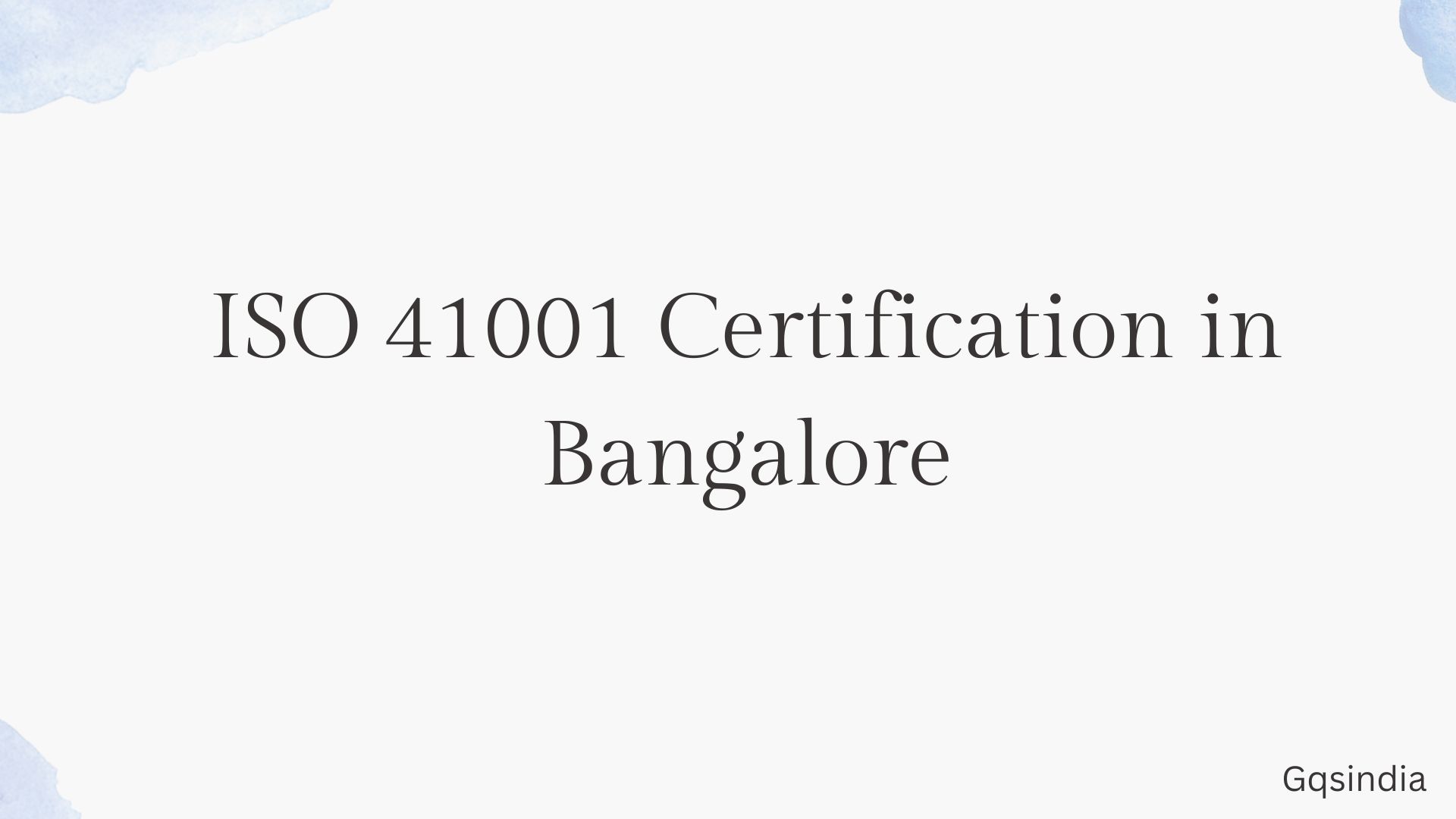Facility Management in a nutshell –
Facility management is formed by 2 words, which we are well familiar with, in our day-to-day life, facilities & management.
Facility refers to the work environment or the place where we work in.
Hence it is important, to keep the place where, people from different places come to work and spend their most part of the day, safe, sanitized, clean, as per disaster safety standards & people friendly.
Hence to summarize, Facilities management is a profession, which includes, safety, comfort, and efficiency of the workplace, keeping in mind its continuous functionality, by integrating people, process & technology. Global quality services will assist you in the ISO certification process and helps you in the facility management certification process.
ISO 41001:2018 –
As you all might be aware, ISO – International Organization for Standardization, is a federation or we can say group of national standard bodies, also called ISO member bodies, which culminate to form different technical committees on different subject matters, to draw out or to define, international standards for that subject matter.
ISO 41001:2018 is one such standard, which chalks out, requirements for Facility management system.
The requirements specified in this standard, are completely neutral, that means, these are not chalked out, keeping in mind any organization, or sector of organization, or size & nature & geographic location of the organization.
These requirements are applicable, to public or private sector, to small or mid-cap or large organization, may it belong to IT or Automobile or Finance and may it be located anywhere, it covers them all.
Requirements specified in ISO 41001:2018 –
Quite often, organization, contact external teams for facility management, hence, the requirements are structured in consideration to that, in below points –
- Requirements in context of the organization
- Understanding the organization & its context –
As part of this, a FM team, need to evaluate and understand the context of the organization, which includes, what the organization do, who are the customers, suppliers and what is the end product and based on that, draw out potential risks.
- Understanding the needs and expectations of involved parties
- Determining the scope of the FM system –
Based on above points determine the scope of the FM system.
- FM system –
Once, scope is defined, draw out the FM system.
- Requirements for Leadership
- Leadership & commitment –
Top level management of the organization must be committed, they should provide required resources and competent people, and they need to demonstrate accountability.
- Policy
- Organizational roles, responsibilities & authorities
- Requirements as part of planning
- Actions to address risks and opportunities –
As part of this, FM team, need to determine some detailed actions, which needs to be taken, to encounter risks, identified as part of understanding organizational context.
- FM objectives and planning to achieve them –
Based on the actions determined, FM team need to chalk out the objectives and a well-structured plan to carry out those actions.
- Requirements as part of support –
This talks about, the support required to carry out tasks planned by FM team, mostly top-level management is responsible for providing this support, which includes –
- Providing Resources
- Providing Competent people
- Spreading Awareness
- Communication
- Documented Information
- Organizational Knowledge
- Requirements as part of operations –
Implementing and carrying out the detailed, chalked out plan.
- Operational planning and control
- Coordination with involved parties
- Integration of services
- Requirements as part of performance evaluation
Once all the actions and tasks are completed and FM system is implemented, it is necessary to evaluate and monitor it, to check, if there are loopholes remaining.
- Monitoring, measurement, analysis & evaluation
- Internal audit
- Management review
- Requirements as part of improvement –
Monitoring is a continuous process and it might uncover some loopholes in the FM system, so it is important to chalk out some corrective actions for those loopholes and implement them and also think about some preventative actions to block out some discrepancies to appear in the future.
- Nonconformity & corrective action
- Continual improvement
- Preventive actions
Contact [email protected] 9845313910 for further information
Services Offered :-
India – Bangalore, Chennai, Hyderabad, Mumbai, Kolkata, Mysore, Belgaum

